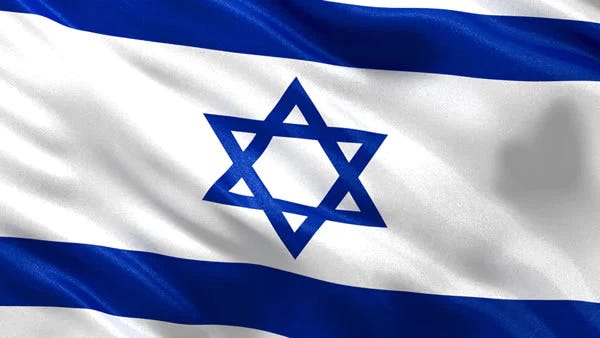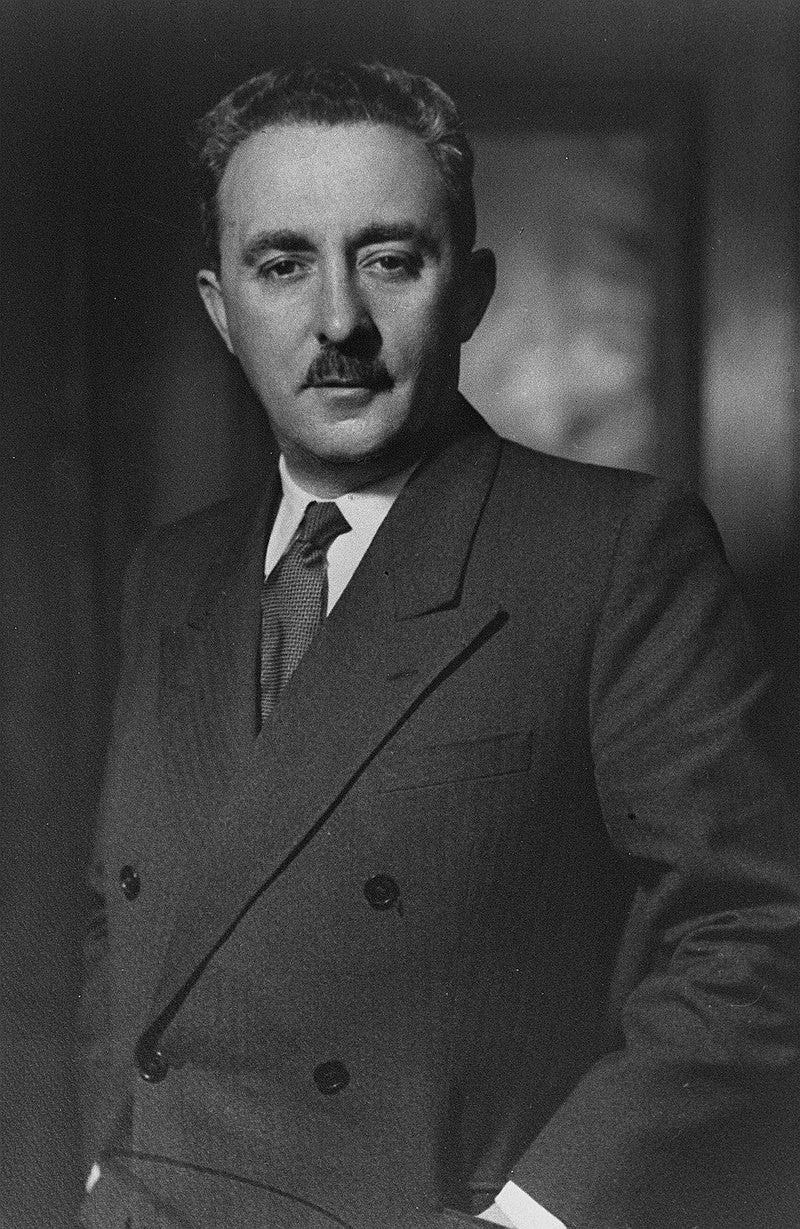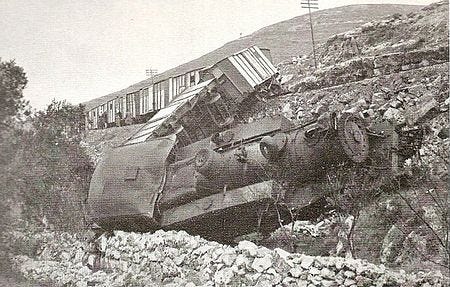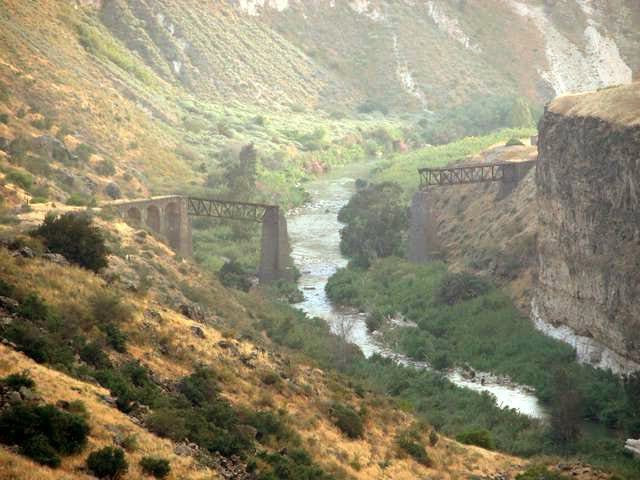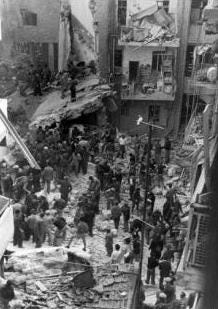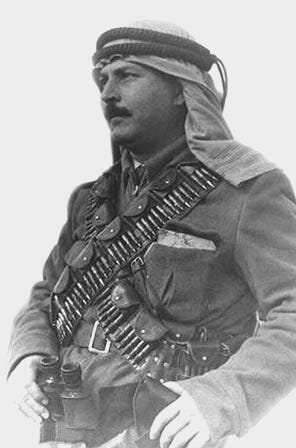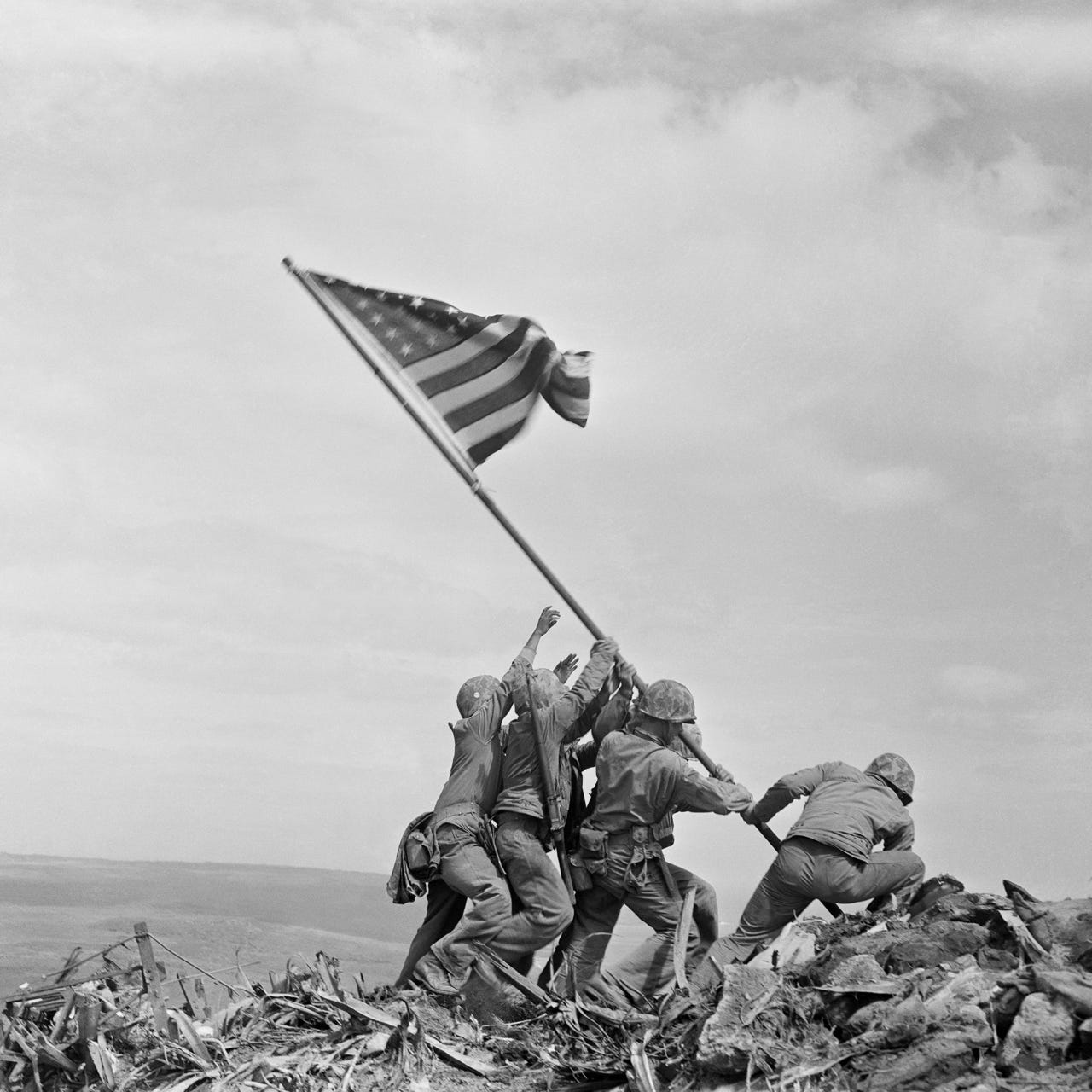A Reposting of A Short History of Israel Part II
Grand Mufti Amin al-Husseini; the Arab Hitler, the Holocaust and World War II, the end of the Mandate and the Palestinian Civil War.
Surprise! I said I wasn’t going to post this until Saturday but I thought I would do it a day early before everyone starts to forget what is going on. This is the second installment of a reposting of the first few episodes of my A Short History of Israel series from the beginning of the year. I want to make sure that everyone knows the real history of the Arab-Israeli conflict. It is very important that the truth wins out over the lies told by the media and “elite” on college campuses, and of course by the terrorists themselves. We must remember that it is Hamas that puts the lives of their fellow Arabs in peril.
My last post started a series about the history of Israel and the Arabs Read it here! Today I will cover World War II, the end of the British Mandate and the Palestinian Civil War.
On September 3 1939 when the United Kingdom declared war on Germany, the situation in Mandatory Palestine became much more confused. The British were focused on the war in Europe, but at the same time wanted to keep Palestine under control and out of Axis hands. They were also still enforcing immigration quotas established in the 1939 White Paper. 15,000 Jews a year were legally allowed to immigrate to the Mandate and once that number had been reached, all others were either turned away of put into internment camps in places like Mauritius or Cypress. Consequently, at the time the Jewish population of Europe needed help the most, Great Britain turned its back on them and condemned thousands of Jews to death at the hands of the Nazis.
The situation for the Jews was made more difficult by the Grand Mufti of Jerusalem Amin al-Husseini,. A die hard anti-Semite, who had left Palestine in October of 1939 before he could be arrested for inciting a riot, had received asylum in Baghdad. When British colonial forces invaded Iraq to secure the oil fields, Iraqi resistance quickly collapsed, and al-Husseini fled, this time through Turkey to Italy and eventually, on November 6 1941, Germany, where he spent the rest of the war. al-Husseini was interested in helping the Nazis in their quest to eliminate the Jewish race and he was especially focused on the Middle East. He was encouraged that rioting had quickly broken out in Iraq after the British had removed their leader, Rashid Ali al-Gaylani, from power. The rioting led to the killing of 200 Jews and the destruction of 900 Jewish homes.
While in Germany al-Husseini met with Adolf Hitler, Foreign Minister Joachim von Ribbentrop, head of the SS Heinrich Himmler as well as many other high ranking Nazi officials.
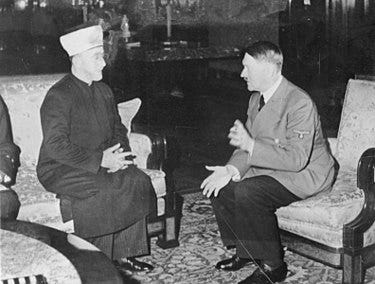
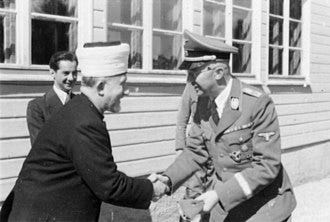
However, al-Husseini was never able to get them to publicly announce support for the Arab position. In his one face to face meeting with Adolf Hitler, al-Husseini asked for a public declaration that "recognized and sympathized with the Arab struggles for independence and liberation, and support for the elimination of a national Jewish homeland. Hitler refused to make such a public announcement, saying that it would strengthen the resolve of the Allies. Hitler did say, that after winning the war "Germany's objective would then be solely the destruction of the Jewish element residing in the Arab world currently under the protection of British power". However, he would not give any concrete assurances or military aid. al-Husseini’s meetings with Himmler were more productive and he was able to get the Reichsfuhrer SS to agree in principle to implementing the “Final Solution to the Jewish Question” in Palestine once the war was over. However, al-Husseini was rebuffed in his request to have a number of the “gas vans”, being used by Einsatzgruppen in the Soviet Union, sent to Palestine. al-Husseini wanted to ship ten of the vehicles to the region to start the eradication of the Jewish population as soon as possible, even before the region was under Nazi control. Himmler was unwilling to ship the vehicles because it was a too much of a risk that the extermination program would become public knowledge. While al-Husseini was not getting anything he wanted out of the Nazis, Hitler and Himmler found al-Husseini very useful. He had a regular radio broadcast from Berlin disseminating pro-Axis, anti-British, and anti-Jewish propaganda to the Middle East. He called for an Arab revolt against Great Britain and the destruction of the Jewish settlements in Palestine. In another broadcast he said:
“It is the duty of Muslims in general and Arabs in particular to drive all Jews from Arab and Islamic countries. Germany is also struggling against the common foe who oppressed Arabs and Muslims in their different countries. It has very clearly recognized the Jews for what they are and resolved to find a definitive solution for the Jewish danger that will eliminate the scourge that Jews represent in the world.”
(notice, again, that he said Arabs, not Palestinians) al-Husseini spent the entire war trying to prevent Jewish immigration to the Mandate going so far in June 1943 to write the Hungarian Foreign Minister, Kalman Kanya, saying it would be better to send Jews in Hungary to concentration camps in Poland rather than let them find asylum in Palestine. In September 1943, intense negotiations to rescue 500 Jewish children from the Italian run Arbe concentration camp, collapsed due to the objection of al-Husseini who blocked the children's departure to Turkey because they would end up in Palestine. A year later, on July 25 1944, he once again wrote to Kanya to register his objection to the release of travel certificates for 900 Jewish children and 100 adults for transfer from Hungary, fearing they might end up in Palestine. He suggested that if such transfers of population were deemed necessary, then:
“I ask your Excellency to permit me to draw your attention to the necessity of preventing the Jews from leaving your country for Palestine, and if there are reasons which make their removal necessary, it would be indispensable and infinitely preferable to send them to other countries where they would find themselves under active control, for example, in Poland, thus avoiding danger and preventing damage.”
After the end of the Second World War, al-Husseini attempted to obtain asylum in Switzerland but his request was refused. He was taken into custody by French troops on May 5 1945, and on May 19, he was transferred to Paris under house arrest. al-Husseini was given “special detention conditions”, benefits and increasingly more important privileges. In October 1945, he was even given permission to buy a car in the name of one of his secretaries and enjoyed some freedom of movement and no restrictions on visitors. al-Husseini was so happy with his treatment in France he stayed there for a full year. The French authorities expected an improvement in France's status in the Arab world through the Mufti’s intermediaries. He gave the French two possible courses of action. Either an action in Egypt, Iraq or even Transjordan to calm the anti-French sentiment or he could organize provocations in Palestine, Egypt and Iraq against Great Britain, in an effort to focus the Arabs countries on British policy, rather than that of the French. The French were not please by either choice, but let al-Husseini remain in his gilded cage.
As early as May 24 1945, Great Britain requested al-Husseini's extradition, arguing that he was a British citizen who had collaborated with the Nazis. Despite the fact that he was on a list of war criminals, France considered him a political prisoner and refused to comply with the British request. France also refused to extradite him to Yugoslavia who wanted to prosecute him for a massacre of Serbs conducted by a unit of Bosnian Muslims, recruited after speeches by al-Husseini encouraged enlistment and whipped up violence against non-Muslims.
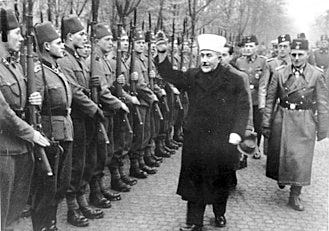
Al-Husseini explained that the massacre was conducted by German troops not the Bosnians and justified the killings by saying that 200,000 Muslims and 40,000 Christians had been assassinated by the Serbs. Zionist representatives, fearing that al-Husseini would escape and return to Palestine, backed Yugoslavia's request for extradition. They claimed that al-Husseini was also responsible for massacres in Greece and pointed out his actions against the Allies in Iraq in 1941.
Members of the Jewish Agency, who loathed Husseini as a Nazi collaborator, and were also aware that countries were competing to employ Nazis and Nazi collaborators, gathered war-crimes documentation on al-Husseini's role in the Holocaust. This was done in order to prevent his reinstatement to a leadership position in Palestine, and in an attempt to have him arrested and prosecuted. In June 1945, Jewish leaders decided to eliminate al-Husseini, but in December, even though he was located and operational planning had begun, the mission was canceled by either Moshe Sharett or David Ben-Gurion, probably because they feared turning the Grand Mufti into a martyr.
In September, the French decided to organize his transfer to an Arab country. The Arab League and diplomats in Egypt, Saudi Arabia and Yemen were contacted. However, in May 1946, French police cancelled their surveillance of al-Husseini and an unidentified Moroccan national organized his escape. The Mufti left France on a TWA flight bound for Cairo using travel papers supplied by a Syrian politician with close ties to the Muslim Brotherhood. It took French officials twelve days to realize he had fled. The British were unable to arrest him in Egypt, because the Egyptians granted him political asylum and shortly thereafter al-Husseini began his practical leadership of the Palestinian Arabs from Cairo.
Meanwhile in the Mandate, things were going from bad to worse. In 1940 after their declaration of war against Great Britain, Italian air forces, bombed Tel Aviv and Haifa killing 150, and causing heavy damage. In 1942, there was a period of great concern for the Yishuv, the term used by the Jews to refer to themselves, when the forces of German General Erwin Rommel advanced east across North Africa towards the Suez Canal, raising fears that he would conquer the Mandate. This period was referred to as the “200 Days of Dread”, and was the direct cause for the founding of the Palmach, a British-trained special operations unit that was part of the Haganah, a paramilitary group composed mostly of reserves, that acted as the Yishuv army. However, there were also bright spots to look to. With the encouragement of many prominent figures such as the mayors of Nablus and Gaza as well as Radio Palestine and the prominent Jafa-based newspaper Falastin, 12,000 Palestinian Arabs volunteered to fight for the British, with many serving in units that also included Jews.
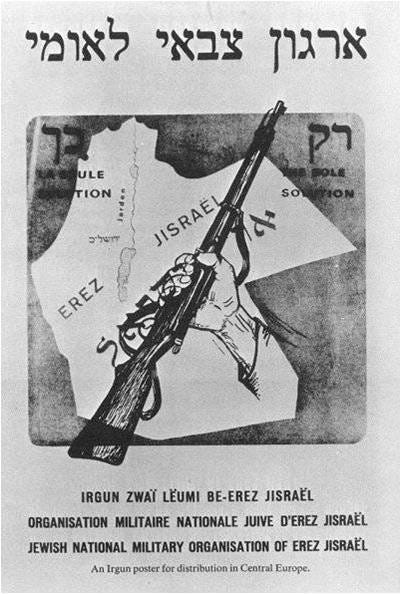
Back in Europe, in late 1944, Jewish members of the Polish resistance and Warsaw ghetto fighters formed a group called “Bricha”, which means “flight” in Hebrew, as a way of escaping the antisemitism of Europe. After the liberation of Rivne by the USSR, and unfavorable treatment at the hands of the Soviets, Eliezer and Abraham Lidovsky along with Pasha Rajchmann, concluded there was no future for Jews in Poland. They soon joined up with a similar effort led by the Jewish Brigade, (an all-Jewish unit of the British Army formed in the Mandate in 1944), which was stationed in the Balkans. Jewish Brigade officers along with operatives of Haganah assumed control of the operation. They hoped to smuggle as many displaced persons as possible into Palestine through Italy. The operations was funded by the American Jewish Joint Distribution Committee and almost immediately, Bricha became the main conduit for Jews coming to Palestine, especially from the displaced persons camps in Europe. Because of high demand, it initially had to turn people away. Also, the movement of Jewish refugees to Palestine was illegal at both ends. Jews were not officially allowed to leave the countries of Central and Eastern Europe by the Russians, nor were they permitted to settle in Palestine by the British.
By 1944, when it became clear that the Axis Powers would soon lose the war, the Jewish underground groups Lehi and Irgun began a campaign of terror against British officials in the region. They attacked police and government targets in response to British immigration restrictions. However, they intentionally avoided military targets, to ensure that they would not hamper the British war effort against their common enemy. But on November 6 1944, Lehi operatives assassinated the British Minister of State for the Middle East, Lord Moyne. This killing caused the Haganah to actively opposed Irgun and Lehi operations which led to a period of inter-Jewish fighting known as the “Hunting Season”, effectively halting the insurrection. Nonetheless, in the autumn of 1945, following the end of World War II, it became clear that the British would not permit significant Jewish immigration and had no intention of immediately establishing a Jewish state, the Haganah began a period of co-operation with the two underground organizations. By October 1945 Haganah, Irgun and Lehi united to form the “Jewish Resistance Movement” and began to carry out attacks and bombings against the British administration. The Haganah refrained from direct confrontation with British forces, and concentrated its efforts on attacking British immigration control infrastructure, while Irgun and Lehi attacked military and police targets. On October 10, the Palmach, (the more highly trained special operations unit of Haganah), raided the Atlit detainee camp, freeing 208 Jewish illegal immigrants who were being held there. One British police officer was killed in the raid. On the night of October 31, the Haganah, Irgun, and Lehi carried out attacks that came to be known as “The Night of the Trains”. Haganah concentrated on attacking the railway network, with Palmach units planting explosive charges across Palestine, creating 242 breaks in the railway lines. A stationmaster's office, a railway telephone system, and a fuel vehicle were also bombed.
Irgun attacked the Lydda railway station, destroying a locomotive and damaging six others. One Irgun fighter, a British soldier a policeman, and four Arabs were killed in the attacks. Lehi attacked the oil refinery in Haifa. However, the explosives detonated prematurely, killing the Lehi fighter carrying them, and severely injuring another. While there was severe damage to the facility, the oil tanks, which had been the intended target, remained intact. On November 25, the Palmach attacked British police stations in Hadera and Herzliya, six British and eight Arab policemen were wounded. On January 12 1946, Irgun derailed a British payroll train with a bomb, injuring three policemen and making off with 35,000 pounds in cash. On January 19, Irgun launched coordinated attacks in Jerusalem, bombing an electrical substation to blackout an area, as assault teams descended on police headquarters, the central prison and the Palestine Broadcasting Service studios. There was no major damage but one British soldier and two Irgun fighters were killed during the operation. On February 25, in an operation known as the "Night of the Airfields", Irgun and Lehi simultaneously attacked three Royal Air Force airfields destroying fifteen aircraft and damaging eight. On June 16 1946, Haganah carried out an operation known as the “Night of the Bridges” (seems to be a theme here). Palmach units attacked eleven road and railway bridges along the borders with Lebanon, Syria, Transjordan and Egypt to cripple transportation routes used by the British Army. Nine of the eleven bridges were successfully destroyed.
By June 1946, the British were increasingly certain that Haganah, acting under Jewish Agency orders, was involved in insurgent activities despite the protestations of innocence by Jewish Agency leaders. High Commissioner of Palestine General Sir Alan Cunningham decided to move against the Jewish Agency and Haganah. The result was Operation Agatha, a massive military and police operation, during which Jewish institutions and settlements would be raided and mass arrests carried out. The objective of the operation was to find documentary evidence of Jewish Agency complicity in insurgent attacks and of an alliance between Haganah, Irgun, and Lehi. A second goal was to break the military power of Haganah, and to prevent a unilateral declaration of a Jewish state. The operation began on June 29 and continued until July 1. Curfews were imposed throughout Palestine as British troops and police raided the Jewish Agency headquarters in Jerusalem and its offices in Tel Aviv, confiscating nine tons of documents. The British searched 27 Jewish settlements and discovered fifteen arms caches, including one of Hagenah's central arsenals at kibbutz Yagur, a major blow to their efforts to prepare for independence militarily.
The documents seized during Operation Agatha were stored at the King David Hotel which was the military and governmental headquarters of the Mandate, although part of it continued to function as a hotel. In order to destroy incriminating documents regarding Jewish Agency and Haganah involvement in the terror campaign as well as the identities of Haganah members, Haganah began jointly planning an attack on the hotel with Irgun. After repeated postponements by Haganah, Irgun decided to carry out the attack themselves. At 7 am on July 22 1946, seven Irgun members dressed as Arabs and waiters entered the hotel and placed bombs, hidden in milk cans, against the main supports for the south wing of the hotel, directly below the Mandate offices. Three warnings were called in to the hotel switchboard, the French Consulate adjacent to the hotel and to the Palestine Post newspaper. None of the warnings here heeded and when the 770 lbs. of explosives went off at 12:37, 91 people were killed and another 46 were injured.
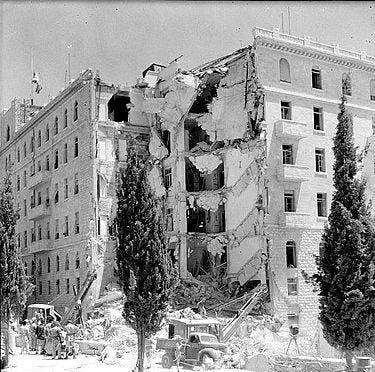
of the 94 killed, 41 were Arabs, 28 were British nationals including 13 British soldiers, 17 were Jews, as well as five people from other countries. Most of the dead were members of the Mandate staff or hotel workers. Chief Secretary for the Government of Palestine, Sir John Shaw, noted that the majority of the dead had been members of his own personal staff. He said:
"British, Arabs, Jews, Greeks, Armenians; senior officers, police, my orderly, my chauffeur, messengers, guards, men and women—young and old—they were my friends.”
The bombing inflamed public opinion in Britain and editorials in British newspapers argued that the bombing contradicted statements by the government that it had been winning against the Jewish paramilitaries.
The attack did not change Britain's stance towards Palestine or the Mandate in general, which was then in its concluding phase. In a letter dated July 25, 1946, British Prime Minister Attlee wrote to President Truman:
"I am sure you will agree that the inhuman crime committed in Jerusalem on 22 July calls for the strongest action against terrorism, and having regard to the sufferings of the innocent Jewish victims of Nazism, should not deter us from introducing a policy designed to bring peace to Palestine with the least possible delay."
As a result of the King David Hotel bombing the UK and the US formed the Anglo-American Committee of Inquiry, a joint attempt by Britain and the United States to agree on a policy regarding the admission of Jews to Palestine. In April, the Committee reported it had arrived at a unanimous decision. The Committee approved the American recommendation for the immediate acceptance of 100,000 Jewish refugees from Europe into Palestine. It also recommended that there be no Arab or Jewish State but a unity government consisting of both peoples. The Committee stated that:
"in order to dispose, once and for all, of the exclusive claims of Jews and Arabs to Palestine, we regard it as essential that a clear statement of principle should be made that Jew shall not dominate Arab and Arab shall not dominate Jew in Palestine".
These events allowed Britain to announce their desire to terminate the Palestine Mandate and place the question of Palestine before the United Nations. The UN created UNSCOP (UN Special Committee on Palestine) on May 15 1947, with representatives from eleven countries. UNSCOP conducted hearings and made a general survey of the situation in Palestine. There was direct input from Jewish representatives but once again the Arabs would not participate. The Arabs believed that even if a partition was made, they could reverse it by force. The committee issued its report on August 31 and recommended the creation of independent Arab and Jewish States and a Special International Regime for Jerusalem. The partition plan provided for the termination of the Mandate, the progressive withdrawal of British armed forces and the delineation of boundaries between the two states and the plan for Jerusalem. The first part of the plan stated the Mandate would be terminated as soon as possible with the United Kingdom withdrawing no later than August 1 1948. The new states would come into existence two months after the withdrawal, but no later than October 1 1948. The plan also sought to address the conflicting objectives and claims of two competing movements, a nascent Palestinian nationalism and Zionism. The plan also called for an economic union between the proposed states, and for the protection of religious and minority rights. Seven members (Canada, Czechoslovakia, Guatemala, Netherlands, Peru, Sweden, and Uruguay) recommended the creation of independent Arab and Jewish states, with Jerusalem to be placed under international administration. Three members (India, Iran, and Yugoslavia) supported the creation of a single federal state containing both Jewish and Arab constituent states. Australia abstained.
On September 23 1947, the UN General Assembly established the Ad Hoc Committee on the Palestinian Question to consider the UNSCOP report. Representatives of the Arab Higher Committee and Jewish Agency were invited and attended. The Arab Higher Committee rejected both the majority and minority recommendations within the UNSCOP report. They "concluded from a survey of Palestine history that Zionist claims to that country had no legal or moral basis". The Arab Higher Committee argued that only an Arab State in the whole of Palestine would be consistent with the UN Charter. The Jewish Agency expressed support for most of the UNSCOP recommendations, but emphasized the "intense urge" of the overwhelming majority of Jewish displaced persons to proceed to Palestine. The Jewish Agency criticized the proposed boundaries, especially in the Western Galilee and Western Jerusalem (outside of the old city), arguing that these should be included in the Jewish state. However, they agreed to accept the plan if "it would make possible the immediate establishment of the Jewish State with sovereign control of its own immigration." Passage of the resolution required a two-thirds majority of the UN's then 56 member states. On November 29 1947, the UN General Assembly voted on Resolution 181, it passed 33 to 13, with 10 abstentions.
Most Jews in the Mandate and around the world reacted to the UN resolution with excitement, people gathered in Tel Aviv and Jerusalem to celebrate late into the night and many cafes served free champagne. Huge bonfires blazed at Kibbutzim, (Jewish collective farms), in the north, with singing and dancing breaking out all over the country. Jewish leaders emphasized the "heavy responsibility" of building a modern State, and committed to working towards a peaceful coexistence with the region's other inhabitants. However, Irgun led by Menachem Begin and Lehi led by Yitzhak Shamir, (both future Prime Ministers of Israel), the two main groups that had been fighting the British and Arabs, stated their opposition. Begin warned that the partition would not bring peace because the Arabs would attack the new state and "in the war ahead we'll have to stand on our own, it will be a war on our existence and future."
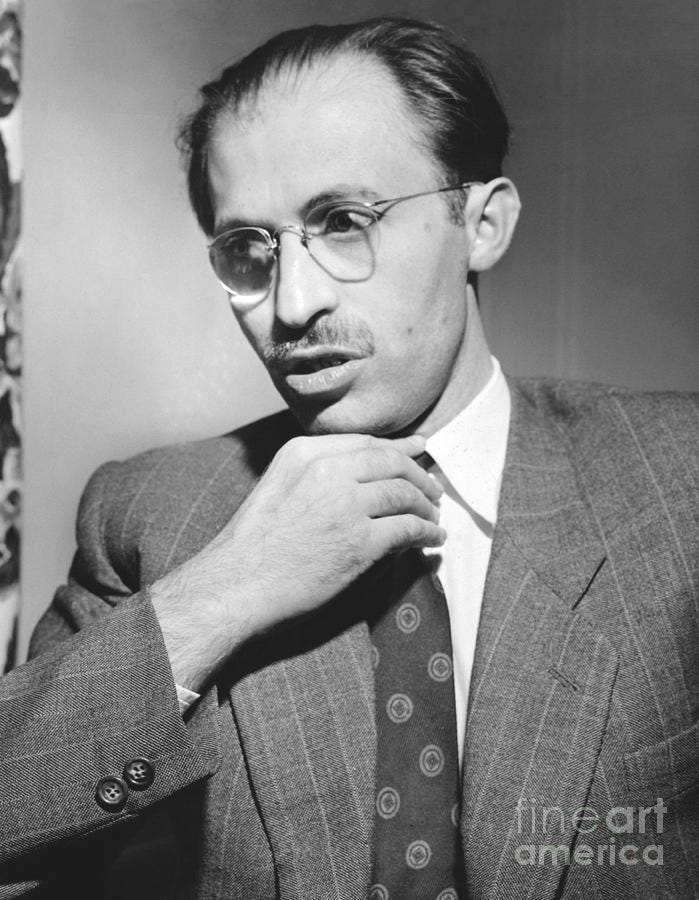
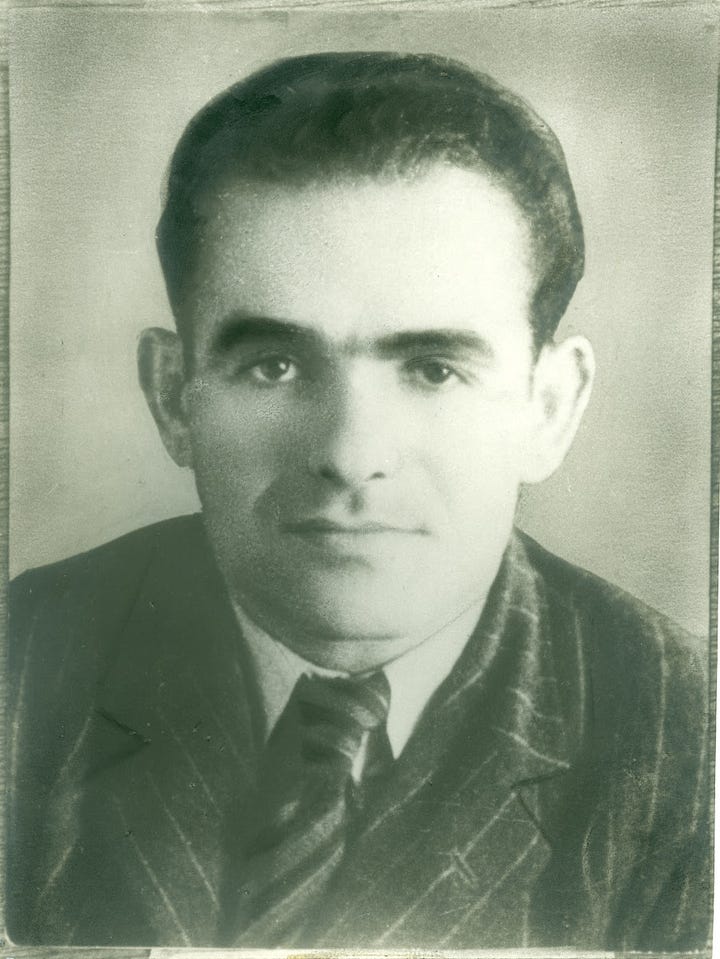
However, Begin was sure that the creation of a Jewish state would make territorial expansion possible, "after the shedding of much blood.
Arab leaders and governments rejected the plan of partition in the resolution and indicated that they would reject any other plan of partition. The Arab delegations declared immediately after the vote that they would not be bound by the decision, and walked out accompanied by the Indian and Pakistani delegates. Abdul Rahman Hassan Azzam the General Secretary of the Arab League, told an Egyptian newspaper
"Personally I hope the Jews do not force us into this war because it will be a war of elimination, it will be a dangerous massacre which history will record similarly to the Mongol massacre or the wars of the Crusades, we will sweep them into the sea."
Syrian president Shukri al-Quwatli told his people in a speech: "We shall eradicate Zionism." and the Arab Higher Committee stated that in a Palestinian state, any Jew who had emigrated to Palestine after the British Mandate (in other words after 1920) would not be citizens. Our old friend Amin al-Husseini, said in an interviewer with the Jaffa newspaper Al Sarih, that the Arabs did not intend merely to prevent partition but "would continue fighting until the Zionists were annihilated." If the Arabs would have just accept the UN proposal then, most of the bloodshed of the following years would have been prevented. The Arabs whine and complain about their situation, but their situation is one of their own making.
After the adoption of UN Resolution 181, it took less than a day for the violence to start. A group of eight Arabs ambushed two buses near the town of Kfar Sirkin. Seven Jews were killed and a dozen wounded. This started a wave of violence which quickly swept the country. Murders, reprisals, and counter-reprisals resulted in dozens of deaths on both sides. The British who were still in charge, did nothing to put a stop to the escalating violence. On December 30, in Haifa, members of Irgun threw two bombs into a group of Arab day laborers who were queueing in front of a refinery, killing six and injuring 42. After the explosions the Arab refinery workers attacked their Jewish coworkers killing 39 and wounding 49 before British soldiers reestablished order. On February 22 1948, supporters of our good buddy Amin al-Husseini organized three attacks against the Jewish community. Car bombs were used against the headquarters of the pro-Zionist Palestine Post, the Ben Yehuda street market and the Jewish Agency offices, killing 88 and injured hundreds of others.
In retaliation Lehi mined a railroad track near Rehovot, destroying a train running from Cairo to Haifa, killing 28 British soldiers and injuring 35. This would be repeated on March 31, near Caesarea Maritima, leading to the deaths of 40 and injuring another 60
Meanwhile, the Grand Mufti, from his Egyptian exile, was gathering a militia force of his own. It was called the Army of the Holy War and numbered 5,000 fighters, commanded by his nephew Abd al-Qader al-Husseini.
In February 1948, Abd al-Qader organized a blockade of Jerusalem shutting down any supplies from reaching the 100,000 Jewish residents. Haganah attempted to run the blockade with convoys of armored trucks but the blockade held, and by March the number of trucks supplying the city fell from thirty a day in January to six a day in March. Most of the Haganah armored trucks had been destroyed and hundreds of their fighters had been killed. On April 3, The Scotsman newspaper reported that a representative of Arab military leaders meeting in Damascus said that the blockade would “strangle Jerusalem”. In early April, David Ben-Gurion and the Jewish Agency, the defacto government of the Jewish inhabitants, ordered Haganah to conduct operations to open Jerusalem to the supply convoys. This order resulted in Operation Nachshon, which lasted from April 5-16 1948, it saw the Haganah attack twelve Arab villages along the route to Jerusalem and take them all with only seven Arab casualties. but ultimately it was not effective in relieving the blockade, as attack on convoys continued. On April 6, as part of the operation, Haganah forces occupied the Arab village on the hilltop of al-Qastal. In the early hours of April 8, Abd al-Qader al-Husseini was personally scouting the village in preparation of an attack, when he was killed by a Haganah sentry. Enraged Arab forces took the village, essentially in an effort to recover their commander’s body, forcing the Haganah unit to retreat temporarily. They returned the next day and retook the village, but the spirit of the Arab forces had been broken by the death of their commander.
So far, Haganah had done all the fighting in the effort to relieve Jerusalem but Irgun and Lehi wanted to show they could fight just like Haganah. The Haganah regarded Irgun and Lehi as little better than terrorists, and tried to have as little to do with them as possible. The Haganah commander in charge of Operation Nachshon, David Shaltiel, suggested they attack the village of Ein Karem but that suggestion was turned down. The two groups stated they were going to attack the village of Dayr Yasin instead. Shaltiel tried to dissuade them, because Dayr Yasin had agreed to a nonaggression pact with Haganah and a Jewish village next door, but Irgun and Lehi went ahead with preparation for the attack anyway. Ben-Zion Cohen, the Lehi commander wanted to exterminate everyone in the village, saying it would make every Arab leave the country. However Irgun leader, Menachem Begin, specifically ordered the Irgun commander not to kill women, children or prisoners. Shaltiel was asked by other Haganah officers to forbid the attack but he said he had no authority over either group and the attack went ahead. Meir Pa'il, an intelligence officer with the Palmach, decided to observe the attack and report back to Shaltiel.
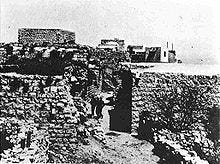
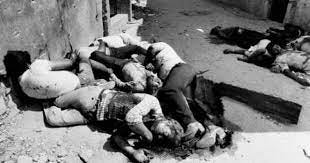
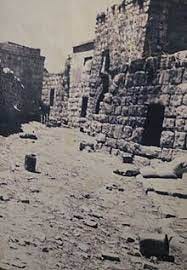
The attack commenced at 4:30 am on April 9th 1948, the Jewish fighters encountered stiffer than expected resistance right away and the attack was in danger of bogging down. With no real experience in military tactics, Cohen order troops to go house to house, toss in a grenade or two and then enter the house shooting. With casualties mounting Irgun forces were prepared to retreat but Lehi leaders, who were only in contact with Irgun commanders by runner, said they had already entered the village, so Irgun pressed on. Inside the village Lehi fighters were taking their frustrations out on the Arab villagers, killing anyone who resisted or came to the aid of wounded Arabs. Some time during the night Cohen was killed by a sniper. By 11:00 am Palmach forces (the elite units of the Haganah), in two armored vehicles with one mortar, arrived to see what had been happening and were immediately asked for arms, ammo and covering fire. After checking with superiors, the Palmach commanders Weg and Moshe Eren were told they could provide cover, only for removal of the wounded, and not to interfere in any combat actions. They were informed that a group of Lehi and Irgun fighters were pinned down by sniper fire. After suppressing the sniper fire Weg Eren made the decision that the only way the wounded could be evacuated was to secure the entire village. Eren and his platoon quickly accomplished that indicating that the village defenses were neither tough nor professional. Thanks to the rapid work of Palmach the fighting was over by about 11:30 am with a large number of villagers escaping. Meanwhile, the Palmach troops and Irgun and Lehi fighters went house to house to "clean up" and secure them. During this “clean up” Lehi fighters were going to blow up a house but the occupants, nine Arabs, including a woman and a child, surrendered. As they were being taken into custody, the Lehi fighters found the body of their commander and one of the fighters, armed with a light machine gun, yelled “This is for Yiftah (Segal's nickname)!" and killed them all. Just before this Pa'il met Weg Eren and urged him to get out of Deir Yassin: "get away from here! Don't get mixed up with the Irgun and Lehi”, and the Palmach unit withdrew to their camp. Yisrael Natach a member of the Shai (military intelligence and counter-espionage unit) was stationed in Ein Karem, a nearby Jewish village. He heard stories from the villagers that had fled Deir Yassin that one Arab fighter had disguised himself as a woman and triggered the rage of the Irgun and Lehi fighters. He said that villagers arriving from Deir Yassin told him that the Jews found an Arab fighter who had disguised himself as a woman and started checking all the women. One of the people in line to be checked saw that he would be found out, took out a pistol and shot the Jewish commander. The other fighters, in a rage, shot in all directions and killed all the Arabs in the area.
Meir Pa'il later remembered hearing the gunfire begin again. In a report after the incident he recalled that “I took my chap with me and went to see what was happening. We went into houses, in the corners we saw dead bodies. Almost all the dead were old people, children or women, with a few men here and there. They (Irgun and Lehi) had stood them up in the corners and shot them. In the next house more bodies were found and the house after that and so on. They had also shot people running from houses, and prisoners. Pa'il said “I did not know their commanders, and I didn’t want to expose myself. People were going around there with their eyes rolled about in their sockets, full of lust for murder. It seemed to be going on everywhere. Houses and corpses were pillaged and money and jewelry were stolen from prisoners. I didn’t know what to do”.
David Shaltiel received reports on what was happening in Deir Yassin and sent, Haganah intelligence officer, Mordechai Gichon there to convince the underground fighters to stop the massacre. When he arrived at the entrance to the village, his report states “I identified myself, and said that my mission was to check the situation in the village, and demanded that I be allowed to enter. The Irgun and Lehti fighters said 'You will not enter, and if you try we will open fire on you'. I said I would use force, and after consulting with each other, they suggested that I come in alone, without my people. I agreed, and my platoon waited outside the village. After a while they calmed down and they let some of my men enter”. “The fighters were going about the village robbing and stealing everything: Chickens, radio sets, sugar, money, gold and more, each one walked about the village dirty with blood and proud of the number of persons he had killed. Their lack of education and intelligence as compared to our soldiers [i.e., the Haganah] was apparent”.
Pa'il said that what really stopped the massacre, was when the Haredi people of Givat Shaul, the next village over, came into the village and “started yelling "gazlanim" "rotzchim"—(thieves, murderers) "we had an agreement with this village. It was quiet. Why are you murdering them?" the Lehi and Irgun people had no choice, they had to stop. It was about 2:00 or 3:00 PM. Then the Lehi and Irgun gathered about 250 people, most of them women, children and elderly people in a school house. They were debating what to do with them. There was a great deal of yelling. The dissidents were yelling "Let's blow up the schoolhouse with everyone in it" and the Givat Shaul people were yelling "thieves and murderers—don't do it" and so on. Finally they put the prisoners from the schoolhouse on four trucks and drove them to the Arab quarter of Jerusalem near the Damascus gate. I left after the fourth truck went out”.
Shortly after the massacre, Hazem Nusaybah, the news editor of the Palestine Broadcasting Service asked Dr. Hussein Khalidi, the deputy chairman of the Higher Arab Committee, how the story should be covered. Khalidi said that the most must be made of it, and he wrote a press release, stating that at Deir Yassin, children were murdered, pregnant women were raped, all sorts of atrocities." Khalidi told journalists on April 12 that the village's dead included 25 pregnant women, 52 mothers of babies, and 60 girls. In reality, of the 600 people in the village, 101 people were killed, 61 definitely in combat circumstances. According to the Arab survivors themselves, there were no rapes, but they acknowledged that women and children were murdered.
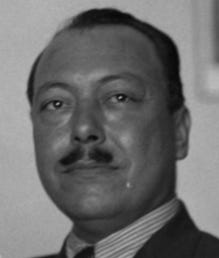
Every group involved had cause for spreading the atrocity narrative. Irgun and Lehi wished to frighten the Arabs into leaving Palestine; the Haganah wished to tarnish the reputations of Irgun and Lehi; and the Arabs wished to malign both the Jews and their cause as well as provoking an international response. In 1955 the Jordanian newspaper Al Urdun published a survivor's account, which said the Palestinians had deliberately exaggerated stories about atrocities in Deir Yassin to encourage others to fight. However the stories had the opposite effect, causing many Arabs to flee. The Dayr Yasin massacre and the inflated news reports about it, caused the flight of Arabs out of the Mandate to go into overdrive and by the end of the civil war, about 250,000–300,000 Arabs had fled or were expelled. The vast majority fled of their own accord. It started with wealthy or well-connected Arabs, who, as the situation deteriorated, fled in great and greater numbers. The wholesale flight of Arabs spread to the middle class who thought that if the rich were leaving maybe we should get out while the getting is good. The Jews on the other hand were in the vast majority of situations telling the Arabs to stay and help them create a new state. There was never a main-stream effort to persuade Arabs to leave Palestine/Israel. In fact even in the cases were Arabs were expelled from the villages they were not told to leave the country just those villages, and more times than not it was a military reason for it.
The next edition of this series will cover the declaration of the Jewish state, The War of Independence and the Suez Crisis. Please make sure that as many people as possible read these posts. We must make sure the truth overcomes the negative propaganda coming from Hamas and the media.
Chris




